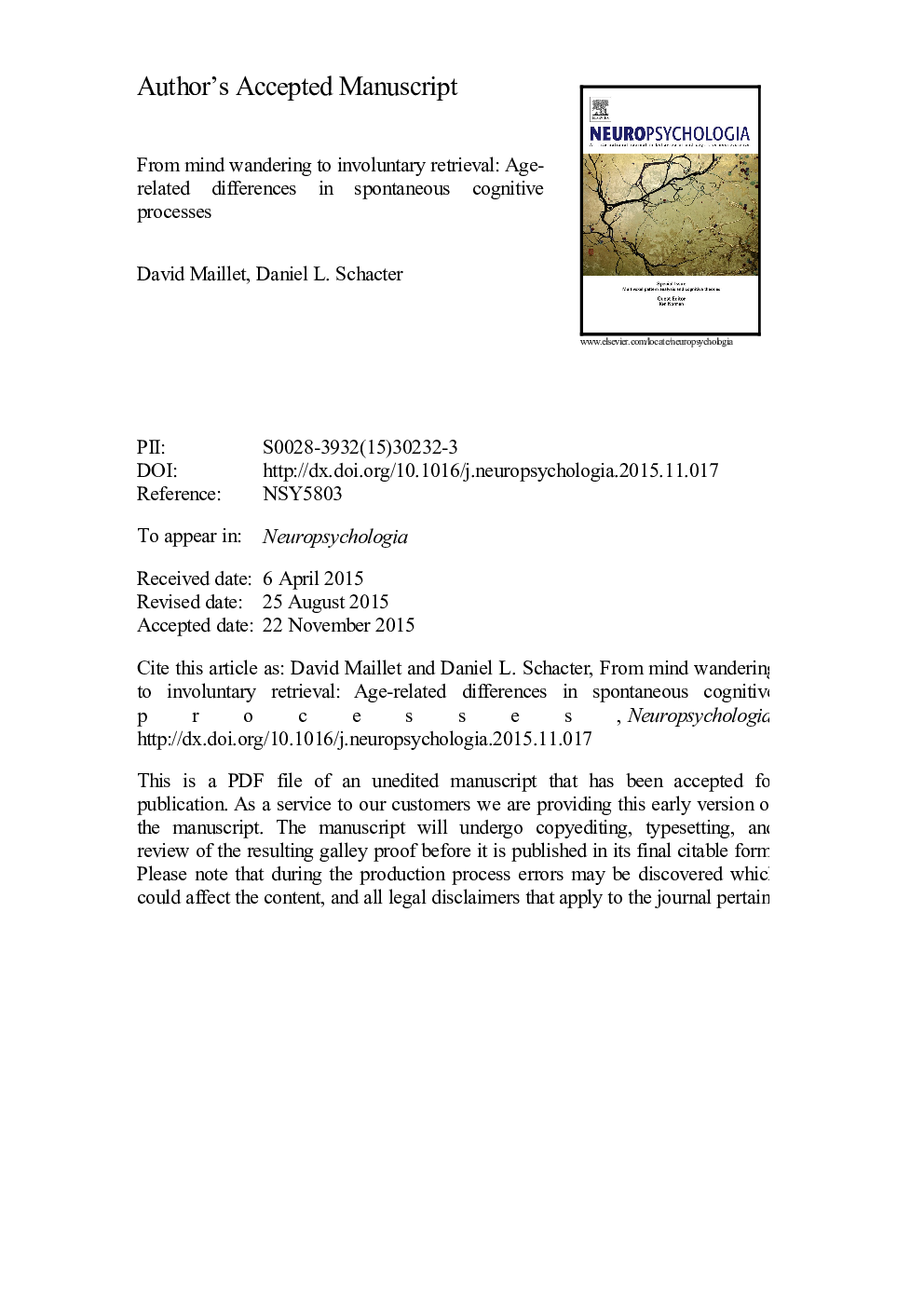| Article ID | Journal | Published Year | Pages | File Type |
|---|---|---|---|---|
| 7319413 | Neuropsychologia | 2016 | 69 Pages |
Abstract
The majority of studies that have investigated the effects of healthy aging on cognition have focused on age-related differences in voluntary and deliberately engaged cognitive processes. Yet many forms of cognition occur spontaneously, without any deliberate attempt at engaging them. In this article we review studies that have assessed age-related differences in four such types of spontaneous thought processes: mind-wandering, involuntary autobiographical memory, intrusive thoughts, and spontaneous prospective memory retrieval. These studies suggest that older adults exhibit a reduction in frequency of both mind-wandering and involuntary autobiographical memory, whereas findings regarding intrusive thoughts have been more mixed. Additionally, there is some preliminary evidence that spontaneous prospective memory retrieval may be relatively preserved in aging. We consider the roles of age-related differences in cognitive resources, motivation, current concerns and emotional regulation in accounting for these findings. We also consider age-related differences in the neural correlates of spontaneous cognitive processes.
Related Topics
Life Sciences
Neuroscience
Behavioral Neuroscience
Authors
David Maillet, Daniel L. Schacter,
